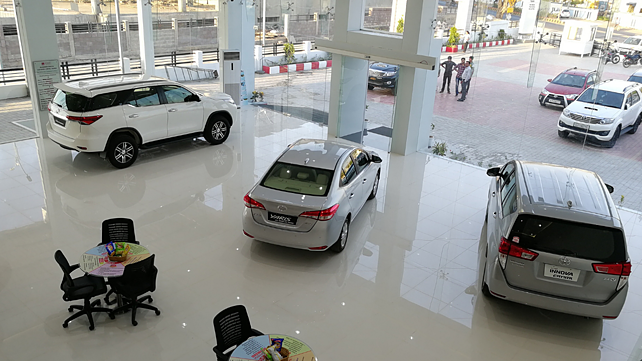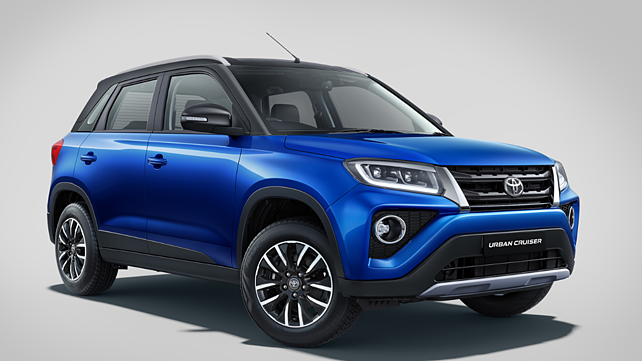
The Indian subsidiary of Japanese automobile manufacturer Toyota Kirloskar Motors (TKM) is working on the Swiggy and Zomato delivery model to deliver cars on time to the customers. This would be the first time in India when a customer can track its vehicle from the factory where it is manufactured to the warehouse and then dealership for delivery. Just like when a customer places an order on a food ordering application, he or she can track the order placed for the food with an estimated delivery time.
In an exclusive interaction with Mobility Outlook, Naveen Soni, Senior Vice-President, Toyota Kirloskar Motor, said, “We are working on two important KPI’s - reduce order to delivery lead time and accurate delivery commitment to customers. To fulfil this, we are working on the visualisation of tracking and tracing the vehicle where exactly it is currently. Giving an example of a food ordering application, today you can track your food as soon as you place the order, and know by what time it will reach you. We want to create a similar situation for our customers.”

It is similar to the company’s Express Maintenance initiative, where a car is serviced in 60 minutes, and customers can trace what is going on with its vehicle.
At present, TKM has had a good number of pending orders that had to be carried forward from the month of April to June. For TKM products, the waiting period is around 30-45 days.
The company has started production in the Bidadi plant in a phased manner from June 15 2021.
Soni said that though dealers are currently working on low inventory, the company has issued strict guidelines to them to deliver cars on the exact dates promised to the customers.
According to the company, 85% of the customers who placed the order before the second wave still want to buy their cars. In terms of enquiries, retail and orders, the company claims that it has achieved close to 60% of enquiries when compared to the same just before restrictions were announced. Also, the current orders stand at a 40% whilst actual retails have been at 20%, when compared to pre COVID second wave era.
TKM sold just 707 units in May 20201. However, from January to May of the ongoing calendar year, the carmaker recorded 104% growth at 50,520 units compared to the January to May period a year ago. As in Q4FY20, the industry was transitioning from BS-IV to BS-VI, hence inventories were low and at the same Q4FY21 observed the pent-up demand.
However, the company claims that refreshed product portfolios such as Innova, Fortuner and the launch of Lengender contributed to the growth. While on the lower end of the spectrum, the company had two products - Glanza and Urban Cruiser instead of one.
Soni added that factors such as the need for personal mobility and pent-up demand contributed to the growth. “In the last two years, we have been able to increase our non-metro market share by 5%. Earlier, non-metro cities contributed 60% of the total sales, which now stands at 65% because of our alliance products such as Glanza and Urban Cruiser.”

In fact, Maruti Suzuki sourced products contributed over 43% of total sales of TKM in the January to May period. Glanza and Urban Cruiser together sold over 21,972 units out of the total sales of 50,520 units.
The company is witnessing a good demand for offerings in the sub 12 lakh segment, which is growing at a rate of 28 per cent (Oct 2020- Mar 2021). “We are witnessing consumers' preference for personal vehicles over shared or public mobility options. Therefore, we anticipate that factors like ‘pent up demand’ and the demand for personal mobility in rural markets are steadily contributing to the increase in demand, and we aim to capitalize the market demand with our product offerings.”
He added, to cater to the rising demand for personal mobility, we are also expanding network footprints to bring in new buyers. Our network reach will expand from 420 at present to 480 numbers by the end of the 2021-22 financial year and most of the growth in dealerships may come from unrepresented towns in rural and semi-urban India.